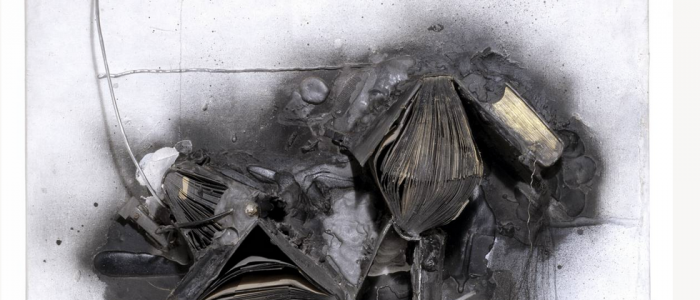The Politics of Ignorance is an exhibition and symposium that examines the strange relationship between the crisis of knowledge and the crisis of politics. And it does so from the novel perspective of knowledge’s dark sibling, ignorance.
‘..we are often unaware of the scope and structure of our ignorance. Ignorance is not just a blank space on a person’s mental map. It has contours and coherence, and for all I know rules of operation as well…” [Pynchon T. Slow Learner Brown. 1984.]
“Doubt is our product, since it is the best means of competing with the ‘body of fact’ that exists in the mind of the general public.” (Internal memo of the Brown & Williamson tobacco company. 1969)
The exhibition begins by emphasising the ways in which the scientific disciplines, historically associated with truth telling are increasingly mobilised by bad actors from big tobacco to the fossil fuel industry, as a strategic ploy to obfuscate, mislead, and effectively transform ignorance into a commodity more valuable than gold.
The continued currency of terms like – post-truth – false-flag – alternative facts – fake news – junk-data – are symptomatic of an ongoing an epistemic crisis. However, it is a crisis that is not, as often claimed, simply a phenomenon of the internet. Rather it is the unintended consequence of moving knowledge to the centre of what we take democratic politics to be. It is this politicisation of knowledge that has unwittingly empowered its opposite, ignorance.
Although the work of many of the artists and speakers selected for this event are analytically sophisticated and knowledge rich, their ultimate achievement is to draw a circle around our ignorance. Yes, they make much of the raw data of experience, but only to direct our attention to the full range of our cognitive illiteracy.
Agnotology and the Three Variants of Ignorance
The theoretical starting point of the exhibition/symposium is the concept of agnotology, conceived as the inverse of epistemology. The term was introduced by historian of science Robert Proctor and linguist Ian Boal, who felt the urgency of convening a discussion on ignorance that went beyond seeing it as no more than the “not yet known “. The exhibition design will follow Proctor’s framework of the three variants of ignorance. We begin with ignorance as a native state (or resource). Followed by ignorance as a lost realm (or selective choice), and finally we will examine ignorance as a deliberately engineered strategic ploy. In combination these variants we go beyond ignorance as a vacuum waiting to be filled it is instead a fluid entity with its own “contours, coherence and rules of operation”.
Importantly we are not only depicting citizens as passive subjects being deceived by bad actors, but also examining the many ways in which we might deliberately choose not to know. It will include the recognition that acts of conscious or unconscious ignorance cannot be dismissed as self-delusion but may be key factors in the formation of social and political identity. To a degree the event will draw on Zizek’s ingenious addition to Donald Rumsfeld’s famous taxonomy (known knowns, known unknowns and unknown unknowns) to which Zizek adds *unknown knowns*, for those truths one knows but refuse to acknowledge one knows.
Artificial Stupidity
Today’s politics places knowledge centre stage instantiating a new political logic that pits the technocrat against the populist. It is no coincidence that we see the rise of powerful technocratic art movements such as Evidentiary Realists. The lure of the technocratic in both art and politics is strong as it offers itself as a bulwark against populism.
There are however non-populist alternatives to the rise of a technocratic politics and art. One such avenue is suggested by the work of the artist Micheal O’Connell (aka Mockism) who has written of his encounter with Margaret Boden, an eminent Professor of cognitive science who, after a lecture on the dangers of AI, inquired of O’Connell as to the subject of his PhD to which he replied, ‘artificial stupidity’.
It’s an answer that reflects O’Connell’s wider practice of intervening in the virtual public sphere in ways that illuminate the dysfunctionality of many supposedly intelligent or ‘smart’ systems [..] His term ‘Artificial Stupidity’ acts as a shorthand for lack of general awareness or inability to think about all ‘embracing systems”. O’Connell’s work is one example that suggests an emerging curatorial space that takes us beyond narrow empiricism and the aesthetics of the incontrovertible
David Garcia 12-08-2022

Comments are closed.